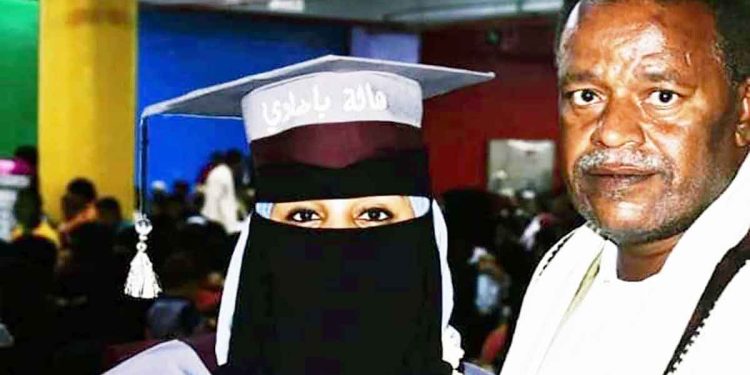In Yemen’s Hadramout governorate, in the country’s southeast, government forces continue to detain media activist Helah Badawi. Badawi was detained on Thursday 30 December.
The Yemeni Union of Journalists (YUJ) reported on Thursday that it had received a notification of Badawi’s arrest at the intelligence services’ headquarters in Hadramout governorate. Badawi has been arrested on account of her journalism.
The YUJ has condemned the “process of arrest” and holds “the governor of Hadhramaut [Faraj al-Bahsani] and the military intelligence command fully responsible for it [the arrest]” and calls for “the quick release of our colleague Badawi and the return of all her belongings, and accountability for this abuse of freedoms of opinion and expression.”
On Thursday, Badawi wrote on her Facebook page that she was being held by military intelligence following a pursuit, and that her bags and phones had been taken.
A relative of Badawi has said that, because of her writing, the journalist has been subjected to numerous threats over the last period. Her family fears even leaving their house on account of those threats.
This is not the first time that Badawi has been detained. She was arrested in February 2020 whilst on route to cover the popular protests held every Thursday in the governorate, at which protestors demand improvements to their living and economic situation, and the reopening of the region’s Al-Rayyan airport.
Media and human rights organizations both inside and outside Yemen have reported that journalists there are subjected to “numerous violations and crimes” from all parties to the ongoing conflict in the country.
According to Reporters without Borders’ 2020 media freedom league table, published annually, Yemen ranks 169th out of 180 countries.
According to the YUJ’s latest report, from 2015 until the third quarter of 2021, Yemeni press workers have suffered 1,359 violations of their freedom, including 38 cases of murder.
For more than seven years, Yemen has seen a conflict that has killed more than 233,000 people, whilst 80% of the population – 30 million people – have become dependent on food aid to survive what is, according to the UN, “the worst humanitarian crisis in the world”.
The conflict is complicated by regional involvement. Since March 2015, a Saudi-led Arab coalition has carried out military operations in support of government forces against the Iran-backed Houthis, themselves in control of several governorates, including that of the capital, Sanaa.


























